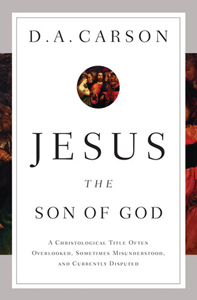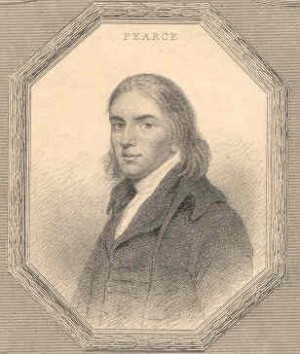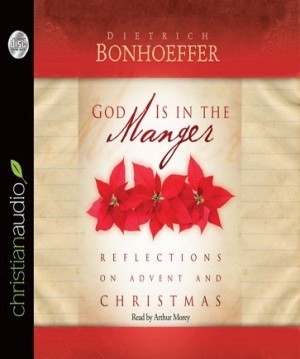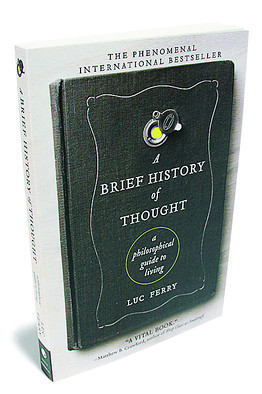Justin Taylor's Blog, page 178
December 11, 2012
What Can and Cannot Change in Our Relationship with God
Bryan Chapell, in Holiness by Grace: Delighting in the Joy That Is Our Strength (Crossway, 2001), 196, has a helpful chart looking at what does and does not change in the relationship between God and his children (lightly adapted below):
What Can Change
What Cannot Change
our fellowship
our sonship
our experience of God’s blessing
God’s desire for our welfare
our assurance of God’s love
God’s actual affection for us
God’s delight in our actions
God’s love for us
God’s discipline
our destiny
our sense of guilt
our security
(HT: Dane Ortlund)
These truths were wonderfully explored by the great Puritan theologian John Owen, who distinguished between our unchanging union with God and our changing communion with God. Kelly Kapic summarizes:
It is important to note that Owen maintains an essential distinction between union and communion.
Believers are united to Christ in God by the Spirit. This union is a unilateral action by God, in which those who were dead are made alive, those who lived in darkness begin to see the light, and those who were enslaved to sin are set free to be loved and to love. When one speaks of “union,” it must be clear that the human person is merely receptive, being the object of God’s gracious action. This is the state and condition of all true saints.
Communion with God, however, is distinct from union. Those who are united to Christ are called to respond to God’s loving embrace. While union with Christ is something that does not ebb and flow, one’s experience of communion with Christ can fluctuate.
This is an important theological and experiential distinction, for it protects the biblical truth that we are saved by radical and free divine grace.
Furthermore, this distinction also protects the biblical truth that the children of God have a relationship with their Lord, and as a relationship, there are things that can either help or hinder it. When a believer grows comfortable with sin (whether sins of commission or sins of omission) this invariably affects the level of intimacy this person feels with God. It is not that the Father’s love grows and diminishes for his children in accordance with their actions, for his love is unflinching. It is not that God runs from us, but we run from him. Sin tends to isolate the believer, making him feel distant from God. Then come the accusations—both from Satan and self—which can make the believer worry he is under God’s wrath. In truth, however, saints stand not under wrath, but in the safe shadow of the cross.
While a saint’s consistency in prayer, corporate worship, and biblical meditation are not things that make God love him more or less, such activities tend to foster the beautiful experience of communion with God. Temptations and neglect threaten the communion, but not the union [Works, 2:126]. And it is this union which encourages the believer to turn from sin to the God who is quick to forgive, abounding in compassion, and faithful in his unending love.
Let there be no misunderstanding—for Owen, Christian obedience was of utmost importance, but it was always understood to flow out of this union, and never seen as the ground for it. In harmony with Bunyan and other Dissenters like him, Owen “insisted upon a very personal and emotional experience of union with Christ and the Holy Spirit,” and out of this union naturally flowed active communion.
Kelly M. Kapic, “Worshiping the Triune God: Insights from John Owen,” introduction to John Owen, Communion with the Triune God, ed. Kelly M. Kapic and Justin Taylor; foreword by Kevin J. Vanhoozer (Wheaton, IL: Crossway, 2007), pp. 21-22.
D. A. Carson on the Son of God
 D. A. Carson explains why he wanted to do work on Jesus the Son of God: A Christological Title Often Overlooked, Sometimes Misunderstood, and Currently Disputed.
D. A. Carson explains why he wanted to do work on Jesus the Son of God: A Christological Title Often Overlooked, Sometimes Misunderstood, and Currently Disputed.
I chose the topic about three years ago. Some work I had done while teaching the epistle to the Hebrews, especially Hebrews 1 where Jesus is said to be superior to angels because he is the Son, prompted me to think about the topic more globally. Moreover, for some time I have been thinking through the hiatus between careful exegesis and doctrinal formulations. We need both, of course, but unless the latter are finally controlled by the former, and seen to be controlled by the former, both are weakened. The “Son of God” theme has become one of several test cases in my own mind.
Since choosing the topic, however, the debates concerning what a faithful translation of “Son of God” might be, especially in contexts where one’s envisioned readers are Muslims, have boiled out of the journals read by Bible translators and into the open. Entire denominations have gotten caught up in the controversy, which shows no sign of abating. The last of these three chapters is devoted to addressing both of these points—how, in a Christian context, exegesis rightly leads to Christian confessionalism, and how, in a crosscultural context concerned with preparing Bible translations for Muslim readers, one may wisely negotiate the current debate.
But I beg you to read the first two chapters first. They provide the necessary textual detail on which discussion of the controversies must be based.
You can read the preface and chapter 3 here.
Top 12 Books of 2012
‘Tis the season for Books of the Year lists. I am always interested to hear what certain reviewers recommend. But the one I look forward to most is Tony Reinke’s, which is always an edifying mixture of biblical theology, historical theology, and practical theology. This year’s list doesn’t disappoint. You can read it here.
December 6, 2012
Like a Blind Man Trying to Understand Color
Herman Bavinck once wrote that “If God were to speak to us in a divine language, not a creature would understand him.” We could say that it’s like a blind man trying to understand color—as illustrated in the video below:
HT: 22 Words
But thanks be to God that he has graciously condescended to speak to us, in a sense, from the ground up, using what we can see, touch, hear, and feel to explain eternal and invisible things. Bavinck continues:
But what spells out his grace is the fact that from the moment of creation God stoops down to his creatures, speaking and appearing to them in human fashion. This is why all the names by which God calls himself and allows us to call him are derived from earthly and human relations. (Herman Bavinck, Reformed Dogmatics, Vol. 2: God and Creation [Grand Rapids: Baker Academic, 2006], 100)
And yet this doesn’t mean that everything revealed is fully comprehensible. So the next time you’re tempted to think that certain things in God’s Word can’t be true or are irrational because they can’t be fully explained, just remember that perhaps it is like a blind man trying to understand color.
December 5, 2012
Preaching the Gospel with a Passion for Particular People
 Michael Haykin writes on “The Spirituality of Samuel Pearce” (1766-1799), minister of Cannon Street Baptist Church in Birmingham, England, and a member of the Baptist Missionary Society with William Carey.
Michael Haykin writes on “The Spirituality of Samuel Pearce” (1766-1799), minister of Cannon Street Baptist Church in Birmingham, England, and a member of the Baptist Missionary Society with William Carey.
Haykin writes about Pearce’s passion for the salvation of his fellow man.
This passion is strikingly revealed in an incident that took place when he was asked to preach at the opening of a Baptist meeting-house in Guilsborough, Northamptonshire, in May, 1794. Pearce had spoken in the morning on Psalm 76:10 (“Surely the wrath of man shall praise thee: the remainder of wrath shalt thou restrain”). Later that day, during the midday meal, it was quite evident from the conversation that was going on at the dinner tables that Pearce’s sermon had been warmly appreciated. It was thus no surprise when Pearce was asked if he would be willing to preach again the following morning. “If you will find a congregation,” Pearce responded, “I will find a sermon.” It was agreed to have the sermon at 5 a.m. so that a number of farm labourers could come who wanted to hear Pearce preach and who would have to be at their tasks early in the morning.
After Pearce had preached the second time, and he was sitting at breakfast with a few others, including Andrew Fuller, the latter remarked to Pearce how pleased he had been with the content of his friend’s sermon. But, he went on to say, it seemed to him that Pearce’s sermon was poorly structured. “I thought,” Fuller told his friend, “you did not seem to close when you had really finished. I wondered that, contrary to what is usual with you, you seemed, as it were, to begin again at the end—how was it?” Pearce’s response was terse: “It was so; but I had my reason.” “Well then, come, let us have it,” Fuller jovially responded. Pearce was quite reluctant to divulge the reason, but after a further entreaty from Fuller, he consented and said:
Well, my brother, you shall have the secret, if it must be so. Just at the moment I was about to resume my seat, thinking I had finished, the door opened, and I saw a poor man enter, of the working class; and from the sweat on his brow, and the symptoms of his fatigue, I conjectured that he had walked some miles to this early service, but that he had been unable to reach the place till the close. A momentary thought glanced through my mind-here may be a man who never heard the gospel, or it may be he is one that regards it as a feast of fat things; in either case, the effort on his part demands one on mine. So with the hope of doing him good, I resolved at once to forget all else, and, in despite of criticism, and the apprehension of being thought tedious, to give him a quarter of an hour.
As Fuller and the others present at the breakfast table listened to this simple explanation, they were deeply impressed by Pearce’s evident love for souls. Not afraid to appear as one lacking in preaching skill, especially in the eyes of his fellow pastors, Pearce’s zeal for the spiritual health of all his hearers had led him to minister as best he could to this “poor man” who had arrived late.
Free Bonhoeffer Audiobook on Advent
 ChristianAudio’s free audiobook this month is Dietrich Bonhoeffer’s God Is in the Manger: Reflections on Advent and Christmas.
ChristianAudio’s free audiobook this month is Dietrich Bonhoeffer’s God Is in the Manger: Reflections on Advent and Christmas.
“There are only two places where the powerful and great in this world lose their courage, tremble in the depths of their souls, and become truly afraid. These are the manger and the cross of Jesus Christ.”
“No priest, no theologian stood at the cradle of Bethlehem. And yet, all Christian theology finds its beginnings in the miracle of miracles, that God became human.”
These stirring words are among forty devotions that guide and inspire readers as they move thematically through the weeks of Advent and Christmas, from waiting and mystery to redemption, incarnation, and joy. Supplemented by an informative introduction, short excerpts from Bonhoeffer’s letters, and passages from his Christmas sermons, these daily devotions are timeless and moving reminders of the true gift of Christmas.
Tim Keller: “If You Read Only One Book on Culture, Read This One”
 In this recommended reading list on culture, Tim Keller says that “If you only read one, read this one.” He’s referring to A Brief History of Thought: A Philosophical Guide to Living, Luc Ferry’s international bestseller.
In this recommended reading list on culture, Tim Keller says that “If you only read one, read this one.” He’s referring to A Brief History of Thought: A Philosophical Guide to Living, Luc Ferry’s international bestseller.
Here’s more from Keller on why he thinks this is an important survey for Christians to read:
This book right now is a terrific, fast way to get a handle on western culture because:
It’s a great survey of western thought—very few are available, especially from a non-Christian who is sympathetic to Christianity. All other books you buy will be less comprehensive. Though his expression of Christian doctrine is often garbled, Ferry has deep appreciation for Christianity, and when he describes how Christianity swept Greco-Roman paganism away as a cultural force, it is a remarkable, eye-opening account. It shows a) how complex and difficult it is to change culture, but b) how indeed culture does get changed. The shifts away from Christianity are also extremely interesting.
December 4, 2012
Why Christmas Is in the Winter
From Starr Meade’s delightful allegory Keeping Holiday:
Legend has it that the Founder first came to the town that is now Holiday in the dead of winter. The funny thing is, as much good historical evidence as we have about so much else that has to do with the Founder, no one really knows what day he first showed up. It probably wasn’t winter at all. But the dead of winter would have been a really appropriate time for him to come, wouldn’t it, because the conditions of the people he came to were certainly winter-like. Think about it. In winter, everything’s dark, dreary, and dead. Days are short, and people feel depressed. There’s very little sun, so nothing grows. Plants go dormant, producing nothing. Tree branches are naked and they can’t bear any fruit. Winter’s a wasteland, like the one you came through. Before the Founder rescued them, those he rescued lived in a winter of their own making. They were hopeless; they were lifeless. They could produce nothing worth anything at all. Even if they’d wanted to return to the good Emperor they’d rebelled against, they would have been able to bring him absolutely nothing as a gift to win his favor. The Founder came and changed all that. He burst in upon them all like springtime. He brought light and life and worked so many changes in them and in their town that they became wonderfully productive. Now, the real citizens of Holiday grow all kinds of fruit and produce all kinds of gifts for the Emperor, gifts that he not only accepts, but accepts with delight. So people decorate Holiday homes and Holiday vacation spots with icicles and garlands, reminders of the winter barrenness from which the Founder rescued them.
—Starr Meade, Keeping Holiday (Wheaton, IL: Crossway, 2008), 162-163.
How Evil Was Herod the Great?

Ancient Herodium
Historian Paul Maier:
You may be surprised to hear this, but believe it or not, if you are ever asked which is the one figure from the ancient world on whom we have more primary evidence from original sources than anyone else in the world, the answer is not Jesus or Saint Paul or Caesar Augustus or Julius Caesar—none of those. Alexander the Great? No, no.
It is Herod the Great, believe it or not. Why? Because Josephus gives us two whole book scrolls on the life of Herod the Great. And that is more primary material than anyone else.
Tony Reinke has a helpful podcast interview with Dr. Maier about the paranoid tyrant who ended up killing three of his sons on suspicion of treason, putting to death his favorite wife (of his ten wives!), killing one of his mothers-in-law, drowning a high priest, and killing several uncles and a couple of cousins. They also talk about Herod’s plot to kill a stadium of Jewish leaders, and whether there are any doubts in Dr. Maier’s mind about the historicity of the slaughter of the innocent male children recorded only in Matthew 2—and why there isn’t any collaborating evidence in the historical record.
You can listen to the whole thing here.
The Bad News that Santa Is Coming to Town vs the Good News that Jesus Came to a Little Town
For those who take the Santa Claus story too seriously, it’s sometimes helpful to see a contrast between the Claus narrative and the Christ narrative.
Here’s a clip from a sermon by John Piper, followed by a video of Glen Scrivener offering an entertainingly edifying poem:
Justin Taylor's Blog
- Justin Taylor's profile
- 44 followers



